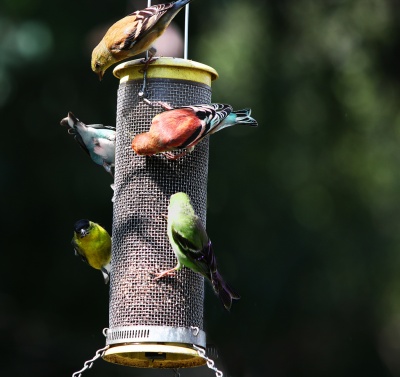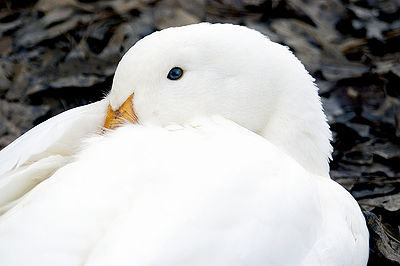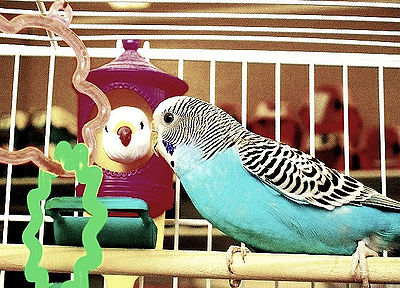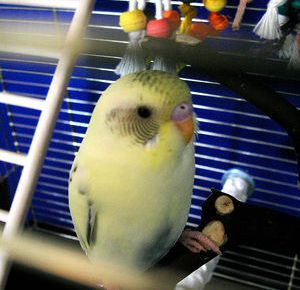 |
One way to help wild birds survive the winter is to set out bird feeders. This is especially important right after a bad storm, when birds may not have access to other food. Because of the importance of feeding birds in the winter months, February has been designated as National Bird-Feeding Month in the United States.
Contents |
Choosing a bird feeder
Although wooden bird feeders are aesthetically pleasing, plastic or metal is more practical. Squirrels may chew through the wood and in wet weather the wood gets damp and the seeds get moldy as a result. A plastic or metal bird feeder will also be easier to clean.
A bird feeder should hold about two pounds of seed. It will be big enough so you don’t have to refill it every day, but not so big that the bird seed gets moldy.
Squirrels often feed from bird feeders. There are devices called baffles whose purpose is to keep out squirrels, as well as a number of squirrel-resistant bird feeders. However, the squirrels are likely to figure out a way to get around these precautions and get to the seeds anyway. You may want to give up the battle before it begins and decide that you are feeding both birds and squirrels. If you see small red squirrels at your feeder, consider feeding them as they may be threatened in your area.
Setting up the feeder
Place your feeder in a place where it is less likely to get wet. Although good bird feeders are fairly watertight, rain can still get in and cause your bird seed to get moldy. The best place for a feeder is under the eaves of your house or on a roofed porch. If you put your feeder near a window, it will also serve you well for birdwatching. Another option is to purchase a clear plastic dome which will serve both to keep squirrels away and to keep the feeder dry.
For easier clean-up, place a large tray under the feeder. The seeds scattered by the birds will land there. The disadvantage of using a tray is that squirrels and large birds will use it as a seat.
Filling the bird feeder
All birds which feed from hanging feeders will eat black-oil sunflower seeds. Chickadees and nuthatches are particularly fond of these seeds. They are inexpensive to buy and there don’t seem to be any major environmental concerns around growing sunflowers for seed. Birdseed mixes sold in stores may seem cheaper, but the birds pick through them for the seeds they like and the rest ends up going to waste.
Ground-feeding birds
Birds such as doves, sparrows, juncos, pheasants and quail prefer to eat directly off the ground instead of from feeders. They also prefer
cracked corn and millet over black-oil sunflower seeds. It is best to feed them by scattering the seeds directly on your driveway, away from the bird feeder.
Related articles:



